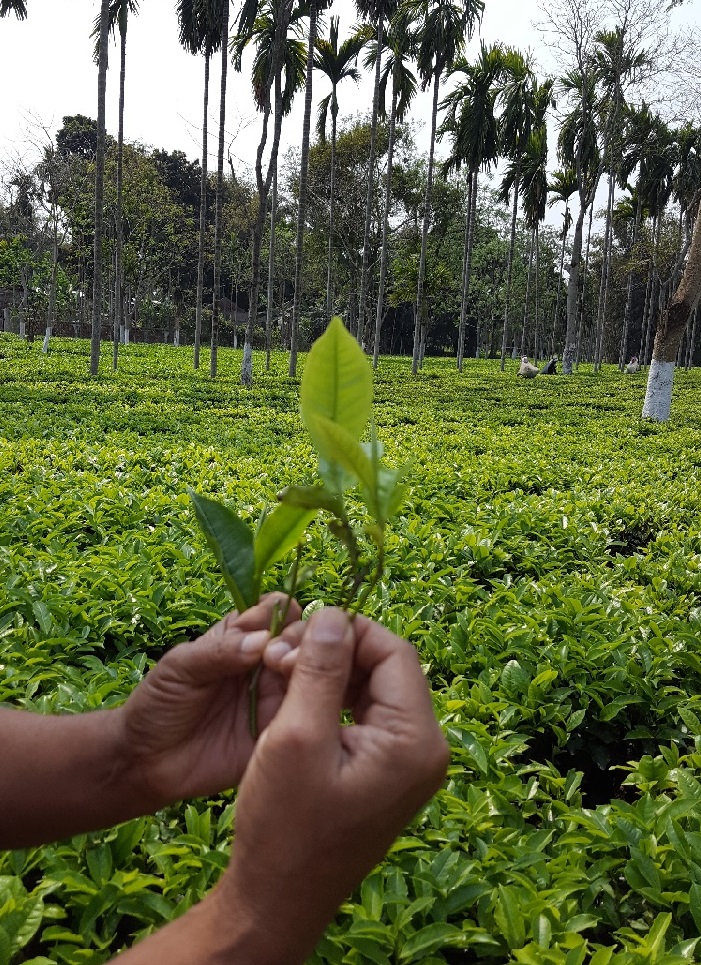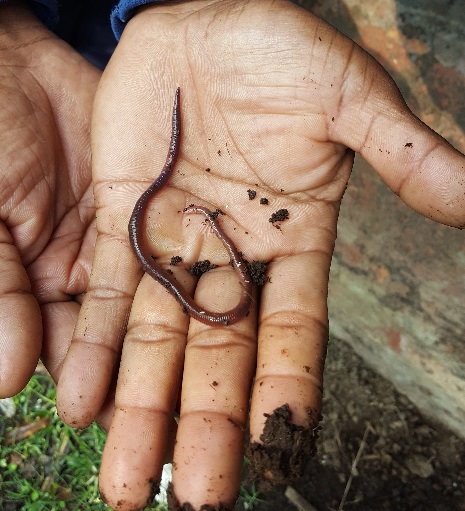
A friend emailed a link to an article/posting by another tea company and asked “Your thoughts?” She did not realize all that goes into my reasons for doing what I do, and primarily offering organically raised teas. Many of you might also appreciate hearing “my thoughts”, since we rarely get time to talk in-depth (and sometimes we don’t even know what questions to ask, when we have the opportunity).
KM: Same as with produce from the farmers market – good to know your farmer. Many small farmers cannot afford the organic certification bells and whistles. So, whether it is certified organic or raised organic without certifications, in my experience, the quality is better and I feel more assured that the workers are not exposed to as much in the way of dangerous chemicals and it is gentler on the earth.
It is not my experience that organic teas taste weaker – In cases of some flavored teas I would agree (green tea mango, and primarily peach (w/o other flavors) and apricot teas are hard for me to find good quality in organic versions). In the case of unflavored teas, if the tea tastes weaker it is inferior quality leaf and has nothing to do with being organic or not.
Alternately – the vendor I had been buying my organic earl grey from ran out and I had to reach out to other vendors to try their versions of “organic” earl grey. One did not have any organic earl grey in their online catalog but could get it from Germany if I ordered a huge amount (which is do-able for me due to the popularity of Earl Grey). So, I got samples from them – 1) organic leaf with “natural flavoring” and 2) 100% organic with organic bergamot. [A change went into effect Dec 2019 wherein tea blenders used to be able to label teas as organic even with natural flavoring because of the 95% rule. They can no longer do this.] I got samples of both – they did not label them – so I did not know which was which and did a blind taste test. Turns out the one that had the best flavor is the 100% organic (I should have it in shop by end of the month).
To me it is a matter of ethics and relationship with the world we live in. It is not healthy or sustainable to keep trying to get more for less out of the earth any more than it is to get more for less from people. Yes, there are many farmers (tea and otherwise) who are doing an amazing job and care about the earth and the relationship with the plants and the earth and do not need to go for certifications as they have built reputations and are appropriately valued.
Big businesses that can afford the certifications may or may not be “green washing”. Elyse, from Tealet, has visited many farms (as has one of my other vendors) and they tell me that it is obvious when farms are using chemicals because the soil is dead and hard and dry vs. vibrant soil with lots of loam and bugs, butterflies and birds.
Personally, when I have a choice I will choose a tea I know has been grown with organic principles, certified or not.
There are very few unflavored teas that I would offer that are not organically grown. For flavored teas, I am super picky – I will carry teas with “natural” flavoring only – no artificial flavors.
I know many customers do not care whether a tea is organic or not, only about the flavor. There are lots of options out there when you don’t care about quality and origin (and the people behind the tea). The company that wrote this article is trying to educate the public on the differences and what to look for – I agree with their premise, and many of their comments. Yet, there are several statements that simply sound to me like justifications for their position as a vendor.
~~~~~~~~~~~~~~~~~~~~~~~~~~
I also shared This, article I wrote that was published in The Healthy Planet magazine last year after I returned from India:
“Our best-selling Iced Tea Blend leaf is from Heritage Tea Farms – a group of small tea farms, with relationships and good practices cultivated by Rajen Baruah for the ultimate purpose of giving back – to the planet, and the Spirit of Tea, which has provided for his family. Due to climate change and the age of many tea gardens it is becoming challenging to provide sustainable income based on old factory methods.
Rajen has worked in tea his entire adult life. When he got to retirement age he wanted to do more to help the farmers and the Assam tea industry. With the support of his family he runs Heritage Tea Farms and is training his sons to carry on his philosophy: “You love the plant, you care for the soil that nurtures it, and it will care for you.” [sic]
Rajen inspires loyalty and a vision for the future – many of his current farmers knew him and worked for him when he worked as manager at large factories. He teaches them how to properly care for the soil and the plants and to create fine hand-crafted teas from their leaf, rather than only being able to supply leaf at low prices for large factories to create machine made CTC (cut-tear-curl) leaf and tea-bag quality leaf.
My Assam tea country week started at a vermicompost facility, where Jayanta and his brother use earthworms to convert plant waste and cow dung into rich, vibrant compost used to feed the soil in their tea gardens. Additionally, I met farmers, tea pluckers and tea makers, and visited lush gardens full of birds & butterflies. I saw how tea is made from start to finish – both at Heritage and in a conventional factory, and got my own experience at rolling tea leaf – it takes a great deal of time and care to make a flavorful hand-crafted tea.
Many large Indian tea factories focus on quantity over quality, using chemicals without adequate protections for workers, and providing barely adequate housing. Some large factories do care and provide for their workers. If the tea you buy is super cheap, you can guess where it probably came from.
Oil and other manufacturing also provide jobs in this area; many young people get education and move away. Heritage strives to provide sustainable income so families can maintain connection to the land and to each other. Our goal is to share more tea from these type of sustainable farms. Please drink and Share only Good Tea.“
~~~~~~~~~~~~~~~~~~~~~~~~~~~~~
Consumer knowledge is key. Getting to know your suppliers is key.
The link to the other company’s article is here

